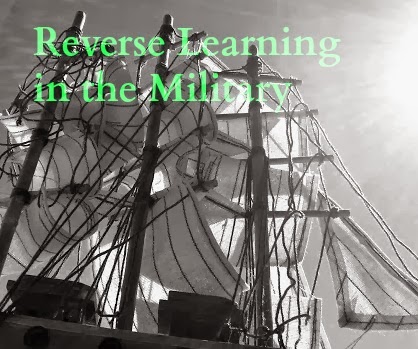Education is more than transferring
knowledge from one person to another without integrating the information. It
requires the building of a sense of community so that students can see
themselves in a different light and find support for their goals. A study by
Shackelford & Maxwell (2012) helps to define how a sense of community is
developed in an online educational environment. Accordingly, they found that
introductions, group projects, sharing personal experiences, class discussions,
and exchanging resources made all the difference. Of these exchanging resources
for learning seemed to be the most important.
Online education is not simply about posting
information in a forum. It is about the way in which that information is
presented for maximum learning and having students cognitively engage in the
process of learning. There are varying aspects of learning that include social reinforcement
and mental processes that further the way in which students understand the
information and how it may enhance their lives.
Social constructivism is a concept whereby people
make meaning out of information by actively engaging in it. It is a process of
learning new information, testing it, sharing it, and manipulating that
information to gain higher levels of understanding. The purpose of online
education is to create conduits of social constructivist learning through
activities infused with information.
To effectively engage students it is required that
they have full expression of themselves through social and emotional processes.
The use of cognitive, social and teacher presence it is possible to enhance
learning through multiple paths of understanding. It is this environmental
framework that creates higher levels of motivational cognitive activities that
are encourage through social engagement.
The survey was conducted with 381 students. The
researched looked at the overall social factors and interaction of students. A
Likert scale and reverse coding were used. SPSS was the statistical software
and a Chi-square analysis was conducted to
understand the relationship between frequency and importance.
Interactions are associated with a
sense of community. The more people interacted the more they viewed themselves
as a group. Using introductions allowed students to foster the rapport needed
for the rest of the semester. Students who shared experiences personalized and incorporated
their information to more real life scenarios. Sharing resources between
students allowed students to take ownership over their learning instead of relying
on the instructor only.
The report doesn’t indicate this
concept but it is important to see such social learning as active versus
passive learning. When students develop a sense of community, find their own
ways of relating to the material, and find resources that help them achieve
their goals they are taking an active role in their learning. They are no
longer passive receptors of information but become part of the overall process
and own that education to a higher degree. Social, cognitive, and resource
develop appear to be an important part of the higher education process.
Shackelford,
J. & Maxwell, M. (2012). Sense of community in graduate online education:
contribution of learning to learner interaction. International Review of Research in Open and Distance Learning, 13
(4).
